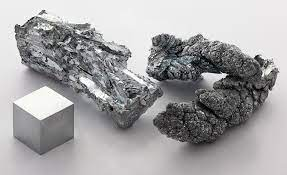The Union Cabinet, led by Prime Minister Narendra Modi, set new royalty rates for four key minerals on Wednesday. The changes aim to boost India’s production of graphite, caesium, rubidium and zirconium and reduce the need for imports.
Royalty rates in detail
- Caesium and rubidium – 2 % of the average sale price (ASP) of the metal found in the ore.
- Zirconium – 1 % of ASP.
- Graphite – 2 % of ASP for ore with 80 % or more fixed carbon; 4 % for ore below 80 %. The rate reflects price changes across different grades.
These rates will help unlock mineral blocks that contain caesium, rubidium and zirconium. The Cabinet said it will also open doors to other critical minerals that often accompany them, such as lithium, tungsten, rare‑earth elements and niobium.
Why this matters
India currently imports about 60 % of its graphite. Graphite is an essential part of electric‑vehicle batteries, making it a core component for the country’s EV push. Zirconium is prized for its resistance to heat and corrosion, and it is used in nuclear reactors, aerospace parts, medical devices and high‑strength alloys. Caesium powers atomic clocks, GPS units, medical equipment and other high‑precision tools, while rubidium is key to specialty glasses used in fibre optics, telecoms, and night‑vision tech.
By tightening royalty rates, the government hopes to:
- Encourage more mineral block auctions and discoveries.
- Increase domestic production of critical minerals.
- Cut dependence on imports and strengthen supply‑chain security.
- Create new jobs across the mining and export industries.
At present, nine graphite mines are operating, and 27 blocks have already been auctioned. The Geological Survey of India and Minerals and Energy of India have released 20 new graphite blocks for auction, with about 26 more under exploration.
These reforms place India on a stronger footing for the high‑tech and energy‑transition future. The government’s focus on critical minerals like graphite, caesium, rubidium and zirconium signals a clear push to reduce import reliance and boost domestic manufacturing.
Stay informed on all the latest news, real-time breaking news updates, and follow all the important headlines in world News on Latest NewsX. Follow us on social media Facebook, Twitter(X), Gettr and subscribe our Youtube Channel.



